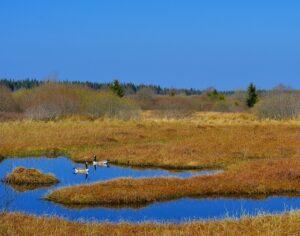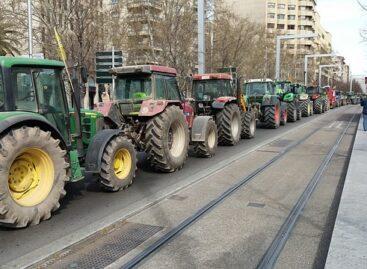EP: 30 percent of habitats must be restored by 2030
At the plenary session in Strasbourg, the European Parliament adopted a proposal for a regulation according to which the member states must restore an increasing number of habitats in degraded ecological condition, at least 30 percent by 2030, at least 60 percent by 2040, and at least 90 percent by 2050, the EU parliament informed on Tuesday.

(Photo: Pixabay)
In addition to the restoration of nature, the proposal for a decree adopted with 329 votes, 275 against and 24 abstentions aims to promote the fulfillment of EU obligations related to climate change and biological diversity, as well as improving food security. Its goal is for the member states to restore good ecological status to at least 30 percent of the habitats covered by the regulation, including forests, grasslands, wetlands, rivers, lakes and coral beds, by 2030, at least 60 percent by 2040, and at least 20 percent by 2050 90 percent. During this, priority will be given to areas under Natura 2000 protection, they wrote. The member states must ensure that the already regenerated areas are prevented from deteriorating, and they must adopt national restoration plans to meet the set goals.
This is what is needed to achieve the goal
In order to restore the species richness of habitats involved in agricultural production, Member States must improve the butterfly population index of grasslands, the proportion of agricultural land with high biodiversity landscape elements, and the amount of organic carbon in the mineral soil of fields. Since birds are a good indicator of the general state of biodiversity in a given area, measures should also be taken to improve the indicator for bird populations in agricultural areas. The proposed decree also aims for the member states to restore at least 30 percent of drained peatlands for agricultural use by 2030, then 40 percent by 2040, and 50 percent by 2050 by flooding. The flooding obligation does not apply to agricultural producers and land-owning private individuals, its fulfillment remains voluntary – they wrote. An emergency brake mechanism is built into the decree for those cases where, due to some extraordinary circumstances, the EU’s food security would be threatened by the fulfillment of the target values prescribed for agricultural ecosystems – they highlighted. The member states must ensure the free flow of water on at least 25,000 kilometers of river sections, eliminating artificial obstacles, and must ensure that the urban green space and urban canopy cover do not decrease on a net basis in their territory. Finally, the proposed decree requires the planting of at least three billion trees.
MTI
Related news
Avian influenza has appeared in a new farm in Csongrád-Csanád County
🎧 Hallgasd a cikket: Lejátszás Szünet Folytatás Leállítás Nyelv: Auto…
Read more >UBM may continue its international expansion
🎧 Hallgasd a cikket: Lejátszás Szünet Folytatás Leállítás Nyelv: Auto…
Read more >Serbian farmers block roads to protest cheap imports
🎧 Hallgasd a cikket: Lejátszás Szünet Folytatás Leállítás Nyelv: Auto…
Read more >Related news
Festival buzz at the 60th anniversary EuroShop trade fair
🎧 Hallgasd a cikket: Lejátszás Szünet Folytatás Leállítás Nyelv: Auto…
Read more >Historic price reduction at ALDI
🎧 Hallgasd a cikket: Lejátszás Szünet Folytatás Leállítás Nyelv: Auto…
Read more >A stable compass in the Hungarian FMCG sector for 20 years
🎧 Hallgasd a cikket: Lejátszás Szünet Folytatás Leállítás Nyelv: Auto…
Read more >







